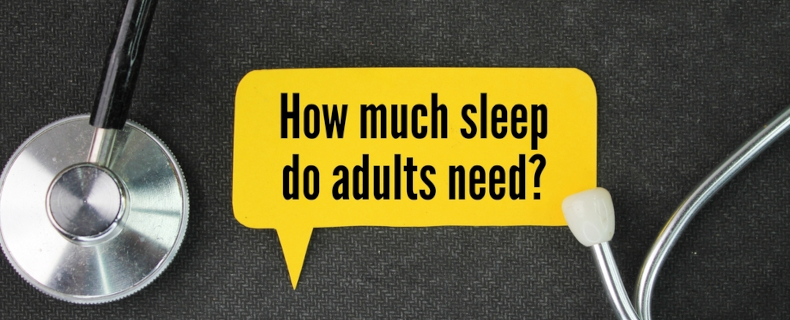Kingston TN
Sleep is a vital part of life as it allows your body an opportunity to rest and rejuvenate as it regenerates cells and regulates the metabolism and immune system. Most adults and teens probably aren’t getting enough sleep and even if you think that you sleep enough hours, are you getting quality sleep? While The National Sleep Foundation recommends a set number of hours each night that varies depending on your age, health, and gender and, scientific research has published updated sleep recommendation guidelines based on age. Keep reading to find out how much sleep you need every night.
Sleep recommendations by age
The average adult ages 18 to 64 should get seven to nine hours of sleep each night. This is enough time for the brain and body to enter REM sleep, which is the deepest stage of the sleep cycle. Additionally, there is another phase called deep sleep, and you need multiple cycles of each every night. After age 65, adults should still aim to sleep at least seven or eight hours a night. Science also concludes that teenagers between the ages of 14 and 17 should log between 8 to 10 hours of sleep a night (so don’t harp on your teen for sleeping in on the weekends!).
While some adults feel well rested after sleeping seven hours a night, some report feeling better when they get closer to nine (or even 10) hours. But don’t try to be a hero by claiming that five to six hours is enough to get you by because you’re likely sleep deprived without realizing it. Unfortunately, the effects of missing sleep can be detrimental to your overall health, including increasing inflammatory markers that could lead to heart disease, stroke, diabetes, dementia, and even cancer.
A professor and director of UC Berkeley’s Sleep and Neuroimaging lab, Dr. Matthew Walker, PhD, explains that sleeping only six hours a night for 10 days in a row could cause impairment in the same way as someone who has been awake for 24 consecutive hours. Another sleep study found that losing as little as 16 minutes of sleep could negatively impact alertness and concentration. So, imagine the effects of losing sleep night after night.
I’m sleeping enough hours but still tired
If you’re logging enough hours of sleep each night, yet still feel chronically fatigued, it may not be that you need more hours of sleep each night, but it could be the quality of your sleep. What does quality have to do with sleep? Quality sleep means that you enter the REM and deep sleep cycles enough times and for long enough for the brain and body to rejuvenate. When these cycles are disrupted, like with obstructive sleep apnea, it leaves you feeling tired and fatigued despite having “slept” the recommended number of hours for your age. If this sounds familiar, you should consider a sleep apnea screening at LakeView Dental Arts.
Sleep Apnea Screenings in Kingston, Tennessee
Sleep apnea screenings can help determine your risk of sleep apnea. This sleep-breathing disorder can affect anyone of any age, regardless of health status. We perform these screenings in our office, and they do not require an official sleep study, although one may be recommended to collect additional data. Our sleep apnea dentists also offer sleep apnea appliances that can be worn in your mouth while you sleep to help open the airway for increased airflow and reduced sleep apnea symptoms, including fatigue. To learn more or schedule your sleep apnea screening today, contact LakeView Dental Arts by calling (865) 248-2199.


